See no evil, catch no evil

IT'S 6 o'clock. As the sultry Baishakh breeze blows, I walk through the familiar spaces in Suhrawardy and TSC that I've passed through innumerable times, places where I've had life-changing debates, made life-long friends and learnt to indulge in the many joys of life, from politics to prem. The mobile tea-biri stalls, the mahogany trees and the nonchalant ganja smokers on the grass all scream familiarity, but today I can't recognise the space anymore. Today, it doesn't seem like a place where I belong.
A few days ago, at this very place, 20 women and girls were sexually tortured, harassed, assaulted, violated (semantics is important: which – if any – of these words can sum up adequately the severity of the violence?) by 30-40 men, in broad daylight, amidst thousands of people celebrating Pahela Baishakh. In clusters, for a whole hour, these men carried out their nasty, vicious, callous 'celebrations': everything and everyone was up for grabs, from 10-year-old girl to middle-aged mother, to be forcefully stripped, groped and bitten. For a whole hour, the women's screams were drowned by the loud siren of vuvuzelas and the even louder thud of people's apathy.
The "unsuspecting crowd" apparently bustled to and fro; did they really notice no oddity? Did they miss the flailing arms, lurid jeers, flashes of skin and the stench of rampant masculinity? Or did they, glimpsing something ominous, scurry away to a safe corner, like they did the night Avijit was hacked to death in front of a street full of people, only a few feet away? Maybe some thought the women deserved it – the audacious girls who had come out of their homes to celebrate the New Year, dressed in the "provocative" colours of Boishakh! For others, the molestation of girls in public spaces may have seemed like 'business as usual'. Eyewitnesses suggest that some of the bystanders, instead of helping them, took to videotaping the assaults, while others joined in the "festivities" directly, hurling themselves onto the women. They found, in the attacks initiated by others, an opportunity to indulge in their own inner fantasies of humiliating and harming women in (forced) positions of weaknesses. Men (in this hetero-patriarchal capitalist society) are honourable creatures, after all.
But forget the bystanders, who, beyond a moral binding, are at least not legally obligated to protect other citizens of this country from vicious attacks. What of our honourable law enforcers, who just stood 20 yards away from where the series of attacks took place and failed, albeit refused, to step in? Some even provided a flawless logic for their non-intervention: the area where the attack took place was, apparently, "beyond their jurisdiction"! And so they allowed the hour-long attack to continue, without so much as a call for backup, despite repeated pleas by Chhatra Union activists to intervene. Worse still, they allegedly released five perpetrators (including two DU students) handed over to them by the activists. At a time of the year when extra police was supposedly deployed all around the area to ensure maximum protection to citizens, such shameless police (in)action must be interrogated and those responsible held accountable. But, oh wait, what's the point of these academic demands? After all, when there was an outcry about the police's "See no evil, hear no evil, catch no evil" syndrome in the Avijit case, didn't the police themselves carry out an investigation about their 'alleged' inadequacies and come to the conclusion that they had, in fact, done nothing wrong? In a country where impunity runs deeper than blood, it's all but a fantasy to wish that law members be held liable for their failures to carry out their mandated tasks.
If police response during the attack was abhorrent, how they reacted to it subsequently was even more disgraceful. For four days, the police, who had access to 19 CCTV cameras positioned strategically around the site, refused to admit that sexual assault had taken place. It's all media hype, they said. On Friday, they released a CCTV footage to the media arguing that it revealed nothing. Unfortunately for the police, who clearly have no conception of what constitutes sexual assault, the media and the public were not so easily fooled; the tape, though not of the area where witnesses suggest the most atrocious assaults took place, showed multiple instances of women being surrounded, groped and attacked. On Saturday, after releasing six more footages, they really had no option but to admit that some assault had taken place, although they still insisted that what they saw on the tapes was really no cause for such fuss. Apparently, unless a woman is stripped and raped, there's no point in losing any sleep over it: all other kinds of violence is "minor" that women should just accept as an inevitable part of their existence. The police sub-inspector of Shahbagh Police Station even went so far as to say that the youth weren't molesters but were rather "related to the girls". How or why they came to these twisted conclusions is anybody's guess. Also, let's not forget, the police have still not released the tape of CCTV camera-16 which apparently covered the area where eyewitnesses suggest the stripping took place.
That the police are acting in this manner is alarming to say the least, for it suggests that in all likelihood justice in this case will remain elusive, much like the hundreds of cases of sexual assault before it that saw no justice. One may well wonder if the police are attempting to save any particular group of people; why else would they go to such lengths to refuse to acknowledge the evidence? Or are we to assume that the police are, in general, this oblivious and insensitive to incidents of violence against women? Either way, if this is how state apparatuses ensure protection of its citizens, can we even be surprised that people carry out such rampant attacks so fearlessly in public?
The university authorities' reaction have also been abhorrent, with the acting proctor taking an equally wishy-washy and problematic stance. That he, too, would see no evidence of assault upon scrutinising the tapes is a cause for apprehension, highlighting the DU authorities' "sensitivity" to sexual violence on its campus.
To top it all off, the Information Minister's comment that this was a conspiracy of militant and Islamist forces to attack our cultural values is yet another insolent example of the state's refusal to admit responsibility and acknowledge that sexual violence, carried out every day by ordinary men, is an integral part of how this patriarchal state functions.
Such blatantly sexist reactions on the part of powerful institutions only go to show how deep the problem runs, and the extent to which women's bodies are restrained and controlled by various patriarchal structures of power. The categorical refusal to acknowledge sexual assault highlights that groping, abuse and harassment of women in public spaces are acceptable, even routine practices that women must live with. They suggest that public spaces and celebrations, even today, belong to men,and that should women dare to transgress, they can and will be put in their rightful place. But, in the end, these ludicrous responses remind us just how much more concerted our fight has to be, how much stronger, louder and more determined we have to be in challenging patriarchal institutions and attitudes, so that we can finally reclaim our public spaces and our lives.
The writer is an activist, journalist and outraged feminist.
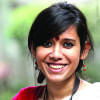
 For all latest news, follow The Daily Star's Google News channel.
For all latest news, follow The Daily Star's Google News channel. 


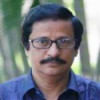

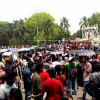
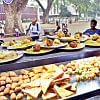

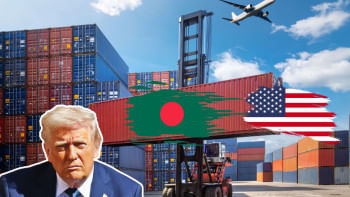
Comments